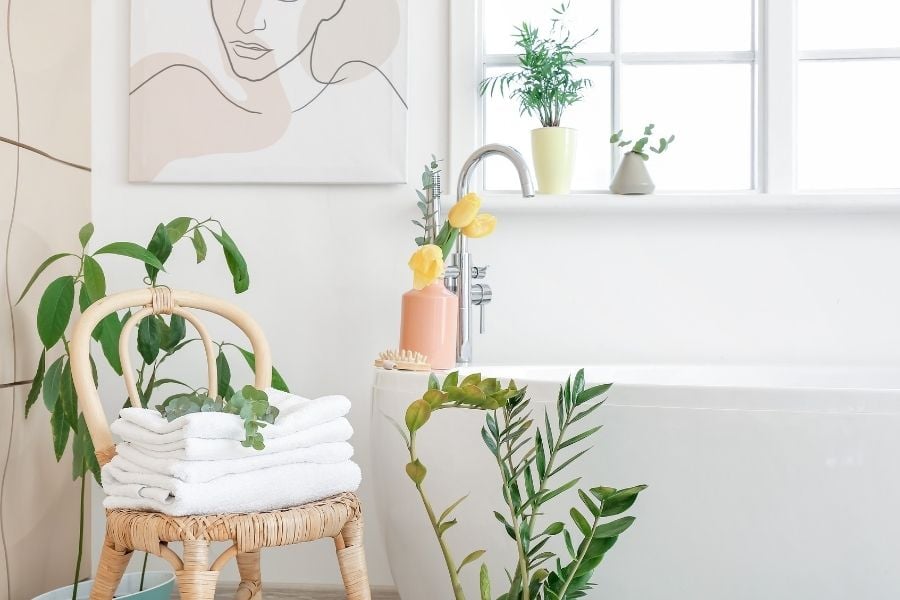
How muggy does it get in your bathroom after a shower? If your answer is anywhere close to “very muggy” and you’re looking into buying an electrical dehumidifier, then, in a word: don’t! Bathroom plants that absorb moisture are by far the superior choice here, the best dehumidifier you can use to get rid of bathroom mugginess.
Get a few plants and they will be infinitely more pleasing to the eye than yet another electrical appliance in your bathroom, or any artificial plants for that matter. They will also lift your spirits, purify the air and deal with unwanted smells much better than toxic air fresheners.
When it comes to moisture absorption, however, plants aren’t created equal. Some can soak it up like a sponge, while other plants, for instance succulents like cacti, won’t fare so well in damp bathrooms. An ideal bathroom plant is highly tolerant of humidity, adapts to frequent temperature changes and can make do with however little sunlight your bathroom receives (especially if there are no windows in your bathroom and you’re planning to get grow lights for your plants).
The following plants tick all these boxes, and you can trust them to reduce humidity and battle mold in the bathroom. Without further ado then, here are our favorite ten bathroom plants that absorb moisture and freshen up the air.
1. Azalea
With probably the most beautiful blooms in the business, the azalea will paint your bathroom vividly purple, pink, red or white. Its natural environment is humid and warm, so your azalea will likely do great in the bathroom – especially if you can provide it with a bit of morning sun.
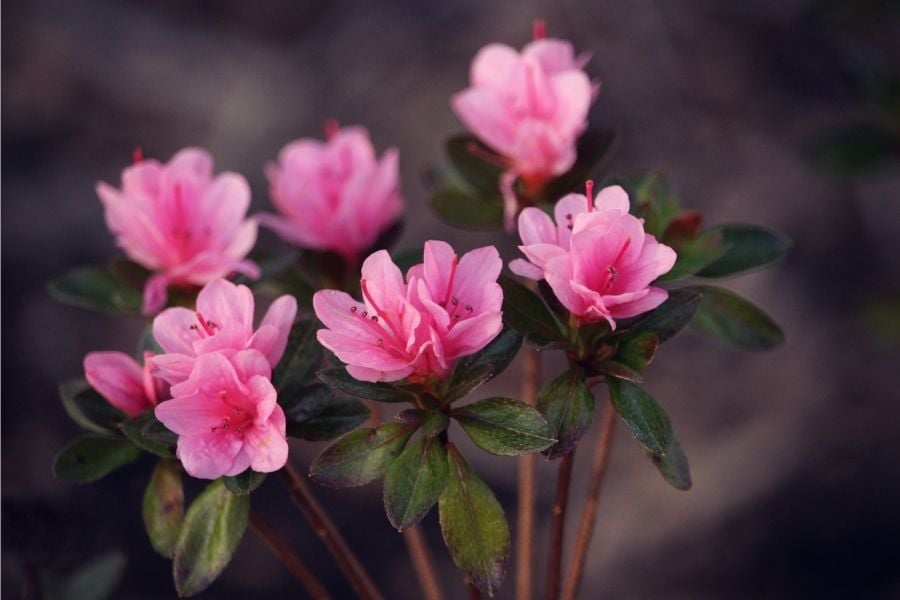
Keep it in a well-drained container and water it regularly, during hot summer months in particular. Potted azaleas don’t grow too big and only grow slowly, but they can still be poisonous for pets – so don’t let your Buddy or Felix get anywhere near it!
2. Boston Fern
A lovely tropical plant with lacy fronds, the Boston fern thrives in moist climates and will therefore absorb your bathroom humidity with ease. It does best in indirect sunlight but can burn really quickly in afternoon sun, so watch out.
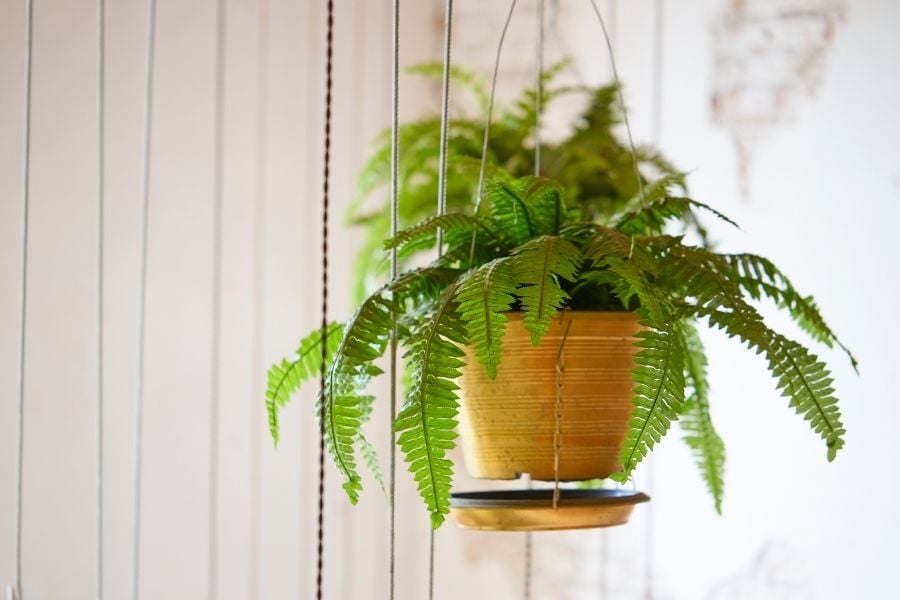
Water your fern monthly when the soil is dry to the touch, and mist the leaves in the winter so that they don’t dry out too much. And while the Boston fern is not toxic, cats just can’t resist those long, playful fronds so don’t let Felix reach this plant either.
3. Peace Lily
Another good-looker on this list, the peace lily wears a crown of white flowers but uses its leaves to suck moisture from the air – also removing toxins in the process. Only water it when the soil dries out, especially when the plant’s leaves start to droop.
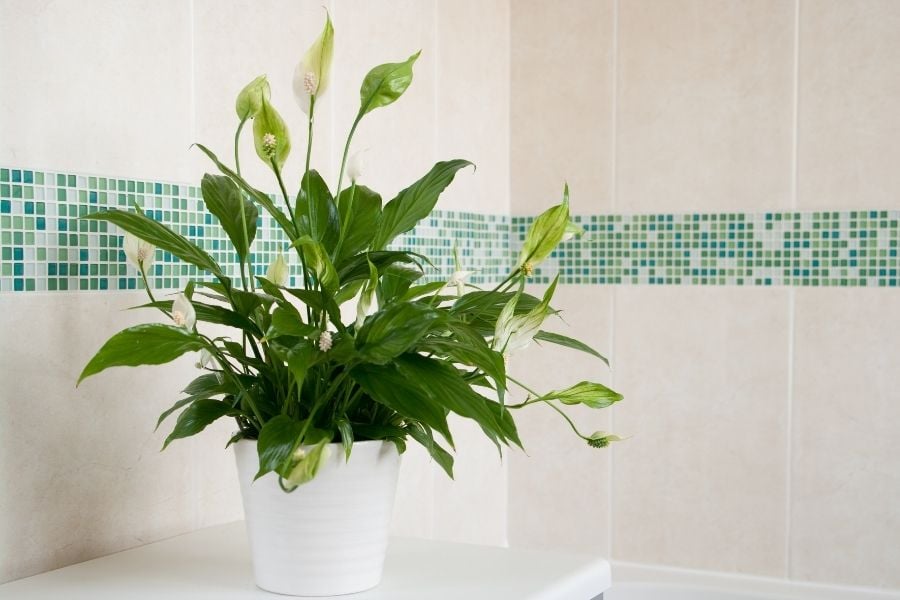
It does well in low light but place it beside a window with some sunshine and it will reward you with a more generous blossom. The peace lily enjoys consistent warmth, so try to protect it from cold drafts and rapid temperature changes.
4. Spider Plant
It owes its creepy-crawly name to the tiny, spider-like pups it produces, but make no mistake about it: the spider plant is nothing short of a marvelous houseplant. With a mop of graceful, arching leaves and fast-growing shoots, it’s our favorite choice for an indoor hanging basket.
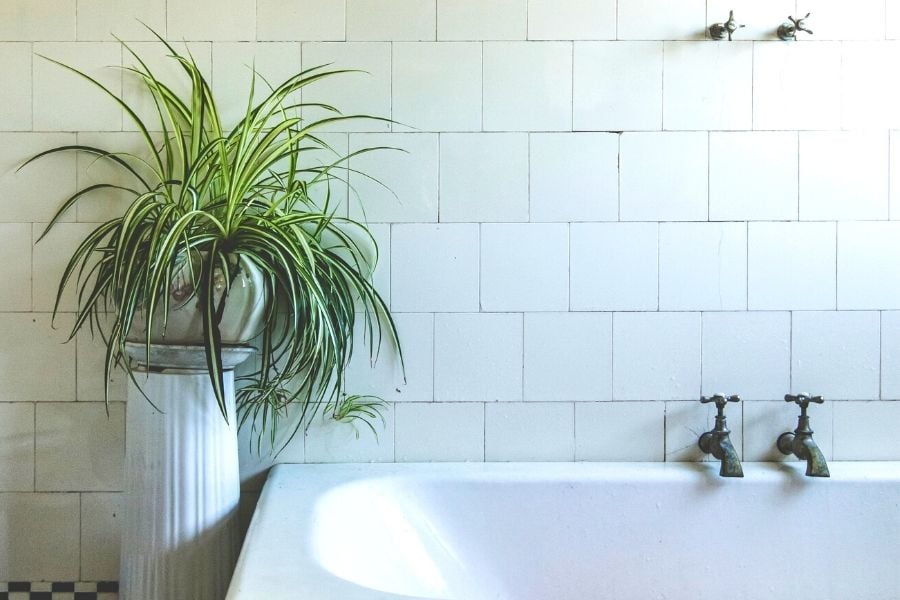
The spider plant is also one of the most adaptable plants and an efficient remover of air pollutants and humidity. It requires little effort on the owner’s part and it thrives in humid, low-light environments, all of which makes it a truly quintessential bathroom plant.
5. Tillandsia
A botanical curiosity which requires no soil to grow, the tillandsia a.k.a. the air plant absorbs moisture in the air through its leaves, and it is a fantastic choice for any black-thumbed plant owner who may be reading this.
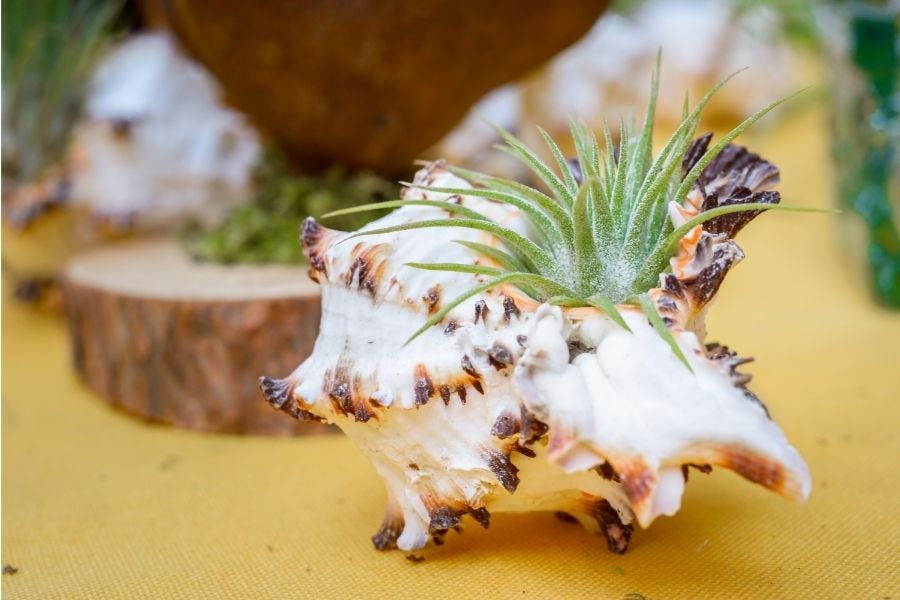
Picture this: no need to dirty your hands with soil, just a graceful little plant that you only need to soak in tap water for a few minutes every other week. It doesn’t need much sunlight either, so give the air plant a go and it may soon become your favorite shower buddy.
6. Begonia
A sprawling genus of 1,800 plant species, begonias typically fare well in pots – as well as in hot, humid bathrooms. Native to moist, tropical climates, most cultivars will rid your bathroom of damp air and decorate it with a cluster of colorful, fragrant flowers.
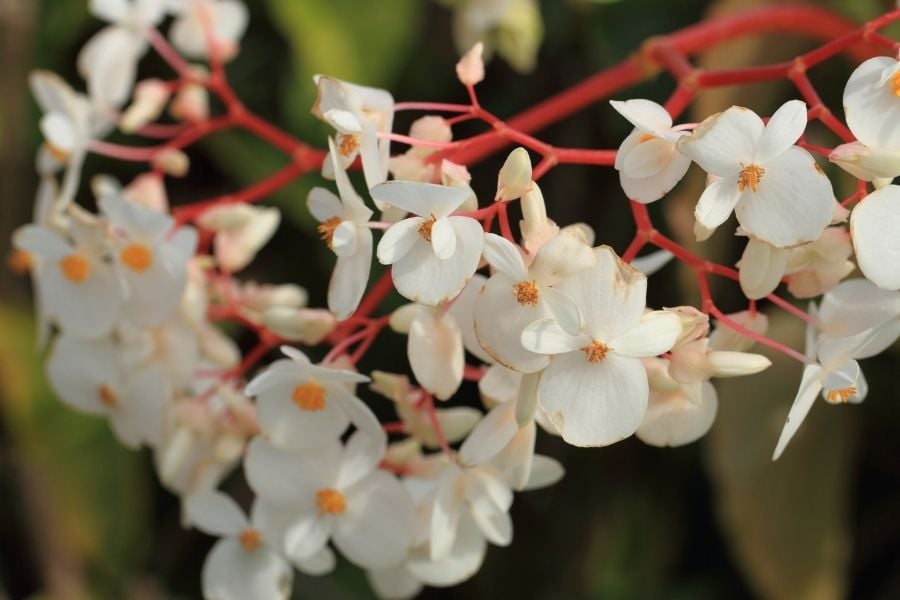
Go for a fibrous or rhizomatous variety (likely the two most household-friendly ones), and expose your begonias to some dappled sunlight in the morning. Do keep them away from your pets though as the roots are known to be very poisonous.
7. Snake Plant
Also going by the charming name of the mother-in-law’s tongue, the snake plant may sound like trouble but it is actually one of the best plants you could put in your bathroom. Not only does it absorb excess moisture, it also filters common household toxins such as formaldehyde.
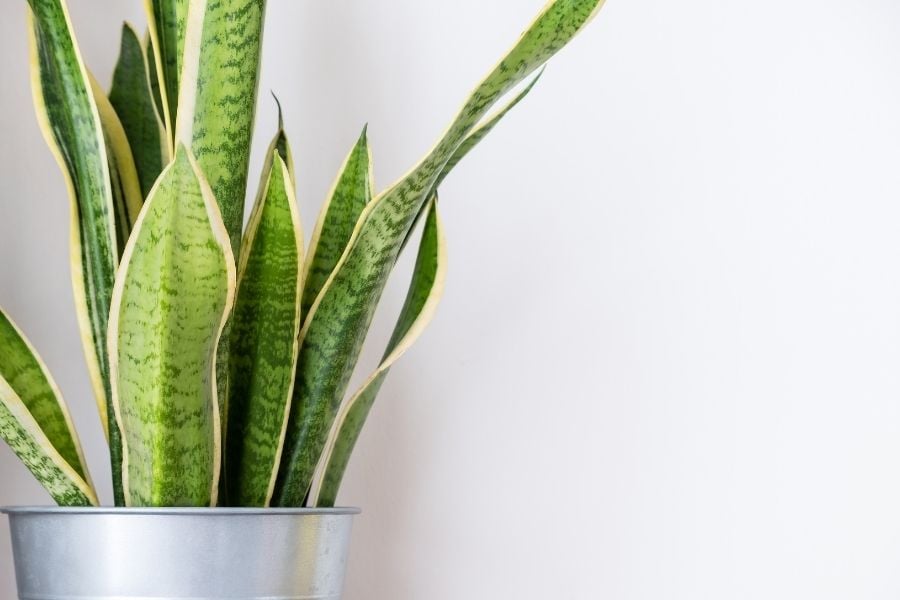
The plant comes in a huge range of leaf shapes and colors, many of them reminiscent of snakeskin, but it requires little more than occasional watering to survive in low-light, high-humidity environments such as tropical jungles and modern bathrooms.
8. Cyclamen
A sweet-scented plant with upswept petals and heart-shaped, patterned leaves, the cyclamen is certainly one pretty addition to your bathroom. Other than catch the eye, however, it will also lower humidity levels and freshen up the air you breathe.
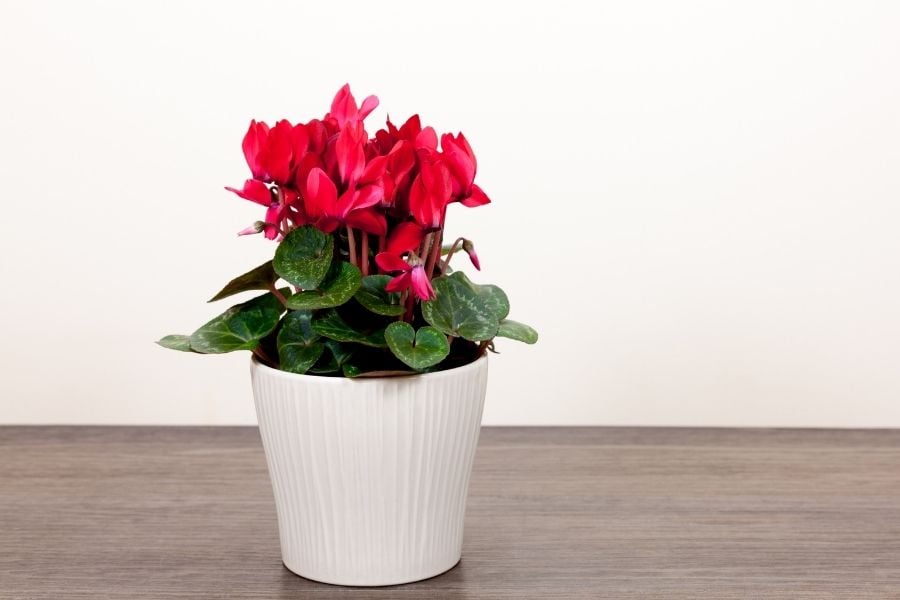
Like most other plants here, it will do best if you can provide it with a bit of morning sunlight but shield it from harsh afternoon sun as well as cold drafts. Plant it in a well-drained container and water your cyclamen when the soil becomes dry at the top.
9. Bird’s Nest Fern
Ideally suited for any muggy bathroom with a window, the bird’s nest fern originates from the tropics and will therefore be more than happy with all the warmth and humidity your steamy showers can produce.
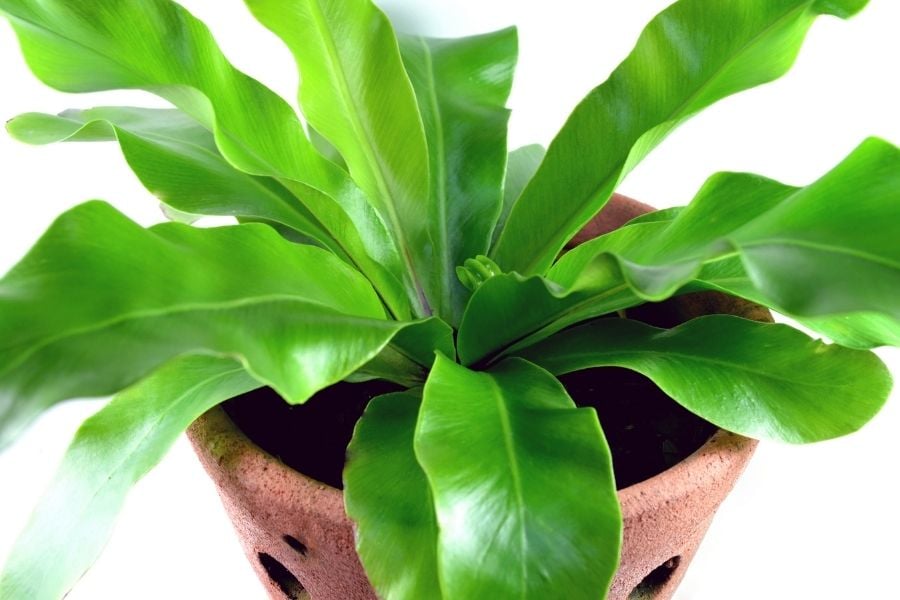
Water it weekly to keep the soil moist, and provide with a bit of morning light; if you grow your bird’s nest fern in insufficient light, it will grow its wavy fronds flatter than in satisfactory amounts of light. Expect a fully-grown specimen to be relatively big, up to 80cm long and 20cm wide.
10. Philodendron
Closing our list is the philodendron, also native to the tropics and therefore quite attuned to the conditions of any muggy bathroom. Some varieties trail while others can grow up to about 8 feet, so make sure you make the right choice for your bathroom size-wise.
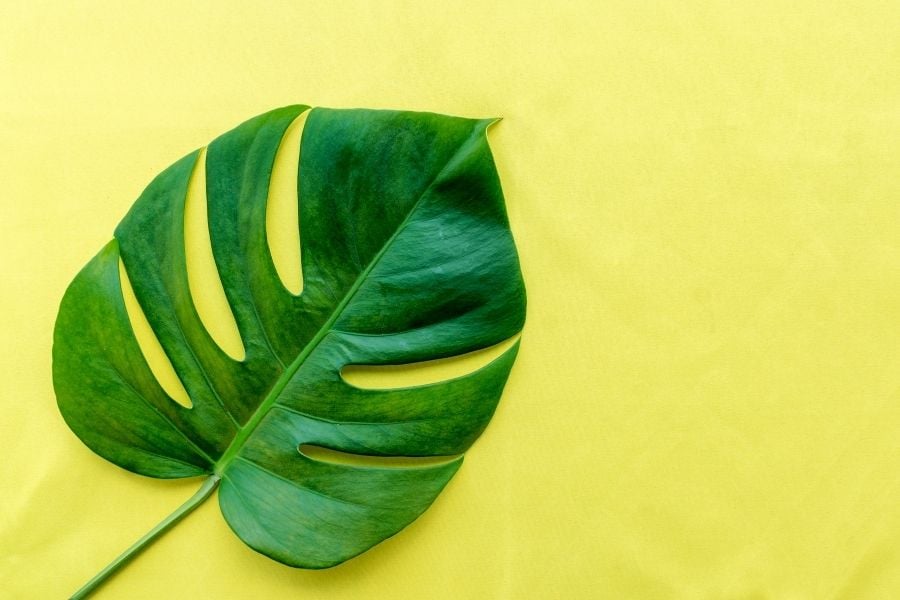
The philodendron requires bright, indirect light to grow, so putting it next to a window with a curtain is a good idea. Keep your philodendron in a well-drained container, and water it regularly especially when it gets hot outside.
…
So there you have it, ten wonderful bathroom plants that absorb moisture and perceive humid, moldy bathrooms in terms of paradises on Earth. If you’d like to put any of them in your own bathroom, you’re going to need a good container. Be sure to browse our extensive collection of universal fiberglass planters!
If you are still looking for that perfect plant to enhance your home, check out our top 10 lucky plants and how to arrange them for maximum good luck vibes!
Bathrooms are usually dark spaces and this may be a challenge for some plants. It’s important to choose the correct plant for your lighting conditions. Luckily, we created a guide to the best growing plants for dark rooms.
